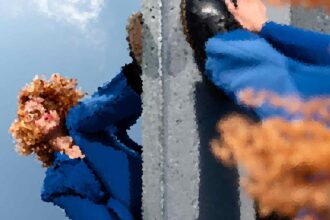What does it mean to be a patriot? For some, it’s a concept tied to land, symbols, and history. For others, it’s about resilience, service, and strengthening communities. Josh Craig Patriot is someone who aligns with the latter definition. Known for his commitment to fostering strong, self-reliant communities, Josh Craig has become a compelling figure for those who share his vision of civic responsibility and grassroots action.
This blog dives into the story of Josh Craig—not just as a “patriot,” but as someone inspiring everyday people to take their skills, values, and passions and use them to build better, more connected lives. From his work in small business advocacy to his role in local initiatives that encourage teamwork and self-reliance, Craig’s story offers lessons for us all.
You might be wondering, what drives someone to take up such a role? And, more practically, how can his strategies apply to your own life? By the end of this post, you’ll walk away not just inspired by Josh’s example, but equipped with practical ways to make an impact in your community.
Josh Craig’s Vision of Patriotism
Patriotism can feel like an abstract idea, but Josh Craig makes it tangible. To him, patriotism is not about grand gestures or loud proclamations. Instead, it is deeply rooted in everyday action—whether helping a neighbor rebuild a fence after a storm, mentoring a budding entrepreneur, or volunteering at local food banks.
Craig often states, “Patriotism isn’t performed—it’s a practice.” His belief is that truly strong nations begin with strong communities. When individuals plug into their local towns and neighborhoods with purpose and shared responsibility, they create an interconnected network of people who thrive together.
Expert Insight
Professor Madeleine Howard, a sociologist specialized in community engagement, notes, “Individuals like Josh Craig teach us something vital—patriotism is dynamic. It adapts to meet the present needs of our community while staying rooted in foundational values of care, loyalty, and teamwork.”
The Core Principles That Define Josh Craig’s Work
Josh Craig’s efforts are underpinned by a few guiding principles. These key ideas can serve as inspiration for anyone looking to make a positive change in their own communities or beyond:
1. Self-Reliance with Collaboration
Josh advocates for a balance of self-reliance and working alongside others. He encourages individuals to focus on skills that promote independence—like gardening, carpentry, or financial planning—but emphasizes that collaboration leads to true progress.
Imagine borrowing tools from a neighbor instead of purchasing your own. Or organizing a day for your street to share skills, like sewing or cooking. According to Craig, this blend of self-reliance and collaboration creates resilient communities that can endure the toughest challenges.
Expert Tip
“A well-organized community is like an ecosystem—each person contributes something unique. It creates a safety net,” says Dr. Olivia Carson, an urban planning researcher.
2. Support for Local Businesses
Craig frequently champions the power of small, local businesses. He argues that they create opportunities, strengthen local economies, and foster meaningful connections. By buying locally, he says, “You’re not just purchasing a product. You’re investing in someone’s dream.”
Have you been to your local farmers’ market lately? Checking out a small coffee roaster or bookstore? Those little decisions ripple outward in big ways.
3. Mentorship & Skill Sharing
One of Josh Craig’s standout traits is his commitment to mentorship. He consistently helps younger generations learn not just practical skills, but also how to embody leadership and accountability.
Take the example of his apprenticeship program for teenagers, teaching everything from carpentry basics to public speaking. His approach is simple yet impactful—instill confidence and competence by teaching actionable skills.
4. Encouraging Self-Sufficiency in Emergency Preparedness
When natural disasters strike, communities often realize they are unprepared. Craig has introduced neighborhood programs dedicated to emergency readiness. These include first aid workshops, food preservation tutorials, and strategies for building mutual aid networks.
“Our goal is not fear—it’s empowerment,” Craig shares. “Preparedness should feel like a source of calm, not panic.”
Expert Contribution
Patricia Malone, a Red Cross expert, agrees. “Preparedness doesn’t mean stockpiling in isolation—it’s about creating plans that involve your whole community.”
How YOU Can Apply These Ideas
Feeling inspired by Josh Craig’s approach? Here’s how you can adopt similar principles in your own life.
- Start Small, Think Big
Recognize a gap in your immediate surroundings. Is there a local park that needs cleanup? Could your home rely less on chain grocery stores and more on local farms? Take one small step, then think of ways to involve others.
- Build Local Connections
Look for ways to connect with neighbors. Host potlucks or weekend DIY workshops like gardening days. In doing so, you’ll build trust and lay the groundwork for future collaboration.
- Shop With Intention
Next time you’re about to make a purchase, ask yourself, “Can I find this locally?” Supporting small businesses takes just a few minutes of your day but creates impactful economic ripple effects.
- Take Action in Crisis Readiness
Offer to organize a first aid or CPR workshop in your community. Not big on public speaking? No problem—team up with local experts to host programs at your library or farmer’s co-op.
- Mentor Someone
Whether it’s helping a young professional draft their first resume or teaching a teen how to paint fences, mentorship doesn’t have to cost you much time or money. Commit to sharing what you know; mentorship not only impacts individuals but lifts entire communities.
Why Josh Craig’s Patriotism Matters
Josh Craig’s perspective on patriotism feels rare in a time when the term is often divisive. By tying it to values like collaboration, mentorship, and practical action, he offers a version of patriotism that anyone can relate to. It’s not about where you come from or grandiose displays—it’s about the choices you make every day and the connections you build.
Through his work, Craig shows that patriotism is more than an abstract ideal—it’s something you live. Whether it’s rebuilding a small local library, helping organize a food drive, or simply supporting the dreams of a local entrepreneur, Craig demonstrates that real strength starts at the community level.
Are you ready to bring these ideas to life in your own neighborhood? Whether you start by supporting a local business, sharing a skill, or borrowing that proverbial cup of sugar from a neighbor, remember—small actions add up in ways you can’t imagine.











